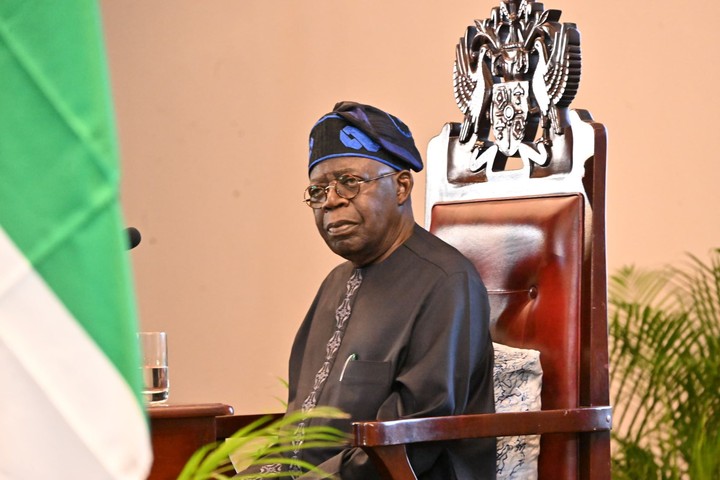President Bola Ahmed Tinubu on Monday formally announced the establishment of diplomatic relations between Nigeria and Saint Lucia, describing the move as a symbolic bridge aimed at fostering closer ties between both nations.

The announcement was made during a special joint session of the Senate and House of Assembly of Saint Lucia at the William Jefferson Clinton Ballroom, Sandals Grande, Gros Islet.
President Tinubu proposed the creation of a Joint Commission or Political Consultation Agreement to serve as a structured platform for cooperation between Nigeria and the Organisation of Eastern Caribbean States (OECS).
He further revealed plans to offer full scholarships to students from OECS countries as part of efforts to promote cultural understanding and deepen relations.
In the presence of leaders from the OECS, including Grenada, Antigua and Barbuda, St Kitts and Nevis, Dominica, Montserrat, Saint Martin, and Saint Vincent, Tinubu highlighted the historical and cultural bonds between Nigeria and the Eastern Caribbean.
He extended Nigeria’s openness to visa waivers for OECS diplomatic and official passport holders and encouraged reciprocal arrangements to ease official travels and deepen institutional ties.
“I respectfully urge a reciprocal gesture to enable smoother movement of officials and foster closer institutional cooperation,” the president stated.
President Tinubu reaffirmed Nigeria’s commitment to strengthening its relationship with OECS countries, anchored on shared African heritage and Pan-African ideals.
He emphasised the significance of historical ties shaped by the transatlantic slave trade and colonial experiences, which forged a common identity and resilience among people of African descent.
Touching on economic diplomacy and trade, Tinubu offered OECS access to Nigeria’s vast market, the largest in Africa, and called for deeper commercial partnerships in agriculture, manufacturing, services, and other sectors.
He invited OECS nations to explore investment and joint venture opportunities, stating that both regions could harness their strengths to attract investments, create jobs, and promote economic growth.
The Nigerian president proposed collaborations between maritime universities in Nigeria and the OECS to enhance technical capacity and academic exchange.
He also announced plans to extend Nigeria’s Technical Aid Corps (TAC) programme to the OECS, providing skilled professionals in education, healthcare, and engineering to support development efforts in the region.
Recognising the grave climate challenges facing small island states, Tinubu called for joint research initiatives in climate adaptation, disaster preparedness, sustainable agriculture, and climate-induced migration management.







